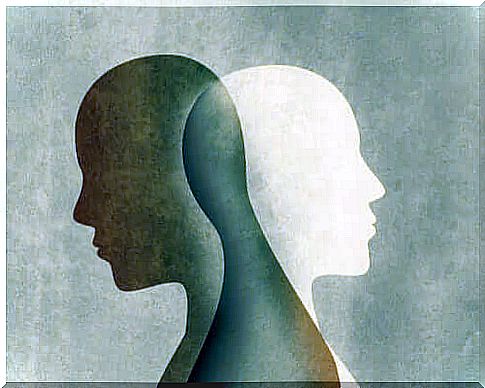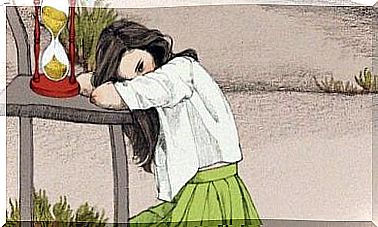How We Make Use Of Moral Compensation

We like to think of ourselves as good people. It is also the image we want to give of ourselves to others. It is a way to maintain a positive self-image. It also allows us to have a concept of ourselves that is pleasing to us. So what then leads us to commit sometimes immoral acts? This can be explained by what is called the moral compensation effect.
The moral compensatory effect is somehow thinking that if we have acted right or morally in the past, we can act “immorally” in the future. Let’s take an example. How many times after going to the gym or running have you said to yourself, “ Today I deserve a treat. I’m going to eat a piece of cake ” . In other words, after maintaining a morally desirable conduct, we allow ourselves the right to adopt a less acceptable one. And without even feeling uncomfortable.
In this article, we will present some studies on the so-called moral compensation effect. This will allow us to delve a little deeper into the question. In addition, we will see that moral compensation can have quite negative effects on some people.

What does research say about the phenomenon of moral compensation?
The phenomenon of moral compensation is therefore an immoral behavior adopted by a person who justifies it by all the moral behaviors that he may have adopted in the past. A number of experiments have studied this phenomenon. According to psychological theories of behavior, humans seek to have a certain cognitive coherence in their thoughts, feelings and behaviors.
One of those rather interesting studies on “moral compensation” qualifies this desire for consistency. It seems that people who behave in a morally laudable manner somehow feel entitled to perform a morally questionable act afterwards (Merritt, Effron & Monin, 2010).
The study highlighted how “moral compensation” leads to a wide range of unwanted behavior. For example, when study subjects recalled some of their past moral or socially desirable behaviors, they were more likely to adopt more negative attitudes.
According to the authors of this study, their past good deeds can allow people to justify their unethical or at least questionable behavior to themselves. In a different context, these same actions would appear immoral to them and they would not display them.
Other studies
Another study on moral compensation led by Jessica Cascio and E. Ashby Plant in 2016 drew the following conclusions:
- The very idea of adopting moral behavior in the future allows people to justify immoral behavior now. In a way, it is a question of adopting a moral behavior by “anticipation”.
- Those most likely to adopt moral behavior in anticipation are also those most likely to be racially prejudiced.
- Moral compensation is probably due to the accumulation of certain moral credits. This credit is obtained by performing morally correct acts in the past
- Moral credit obtained in one area, however, can be used to justify immoral behavior in another area.

Moral cleansing
In a major contribution on moral compensation published in 2009, Sachdeva, Iliev & Medin examine how writing down one’s own positive and negative behaviors can influence charitable donations, for example. Or on collaborative practices.
Based on their findings, the study’s authors tell us that this moral compensation effect fits into a larger framework of moral self-regulation. Thus, the internal balance of moral self-esteem and the consequences of pro-social behavior determine whether a person exhibits moral or immoral behavior.
In short, the study’s authors suggest that displaying a moral identity leads people to believe they have the right to act immorally. However, when moral identity is threatened, moral behavior helps regain some self-esteem, even though it has been damaged.
In other words, when our moral image is solid, we allow ourselves to do immoral behavior without fear of losing that moral image (this is moral compensation). However, when the behavior of one of us is judged immoral by others, he is led to take positive actions to restore his moral image (this is moral cleansing).










